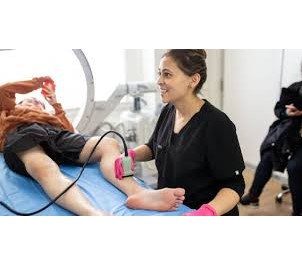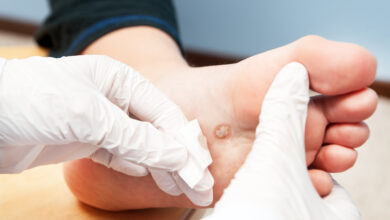What is a Vein Specialist Called? Discover the Benefits of Consulting One

When dealing with vein issues, understanding who to consult is crucial for your health. If you’re asking, “What is a vein specialist called?” you’re in the right place. This article delves into the definition of a vein specialist, the benefits of consulting one, and what you can expect during your visit.
Understanding Vein Specialists
A vein specialist, also known as a phlebologist, is a medical doctor trained specifically in diagnosing and treating conditions related to veins. These conditions can range from varicose veins and spider veins to more serious issues like deep vein thrombosis (DVT) and chronic venous insufficiency (CVI).
Qualifications of a Vein Specialist
Vein specialists typically have extensive training in vascular medicine or surgery. Many have backgrounds in dermatology or general surgery, with additional training focused on vascular health. They often hold certifications from recognized medical boards, ensuring that they meet high standards of care. This specialized training enables them to effectively assess and manage various venous disorders.
Why Should You Consult a Vein Specialist?
1. Accurate Diagnosis
One of the primary advantages of consulting a vein specialist is the ability to obtain an accurate diagnosis. These specialists use advanced imaging techniques, such as ultrasound, to evaluate the blood flow in your veins. With their expertise, they can identify underlying issues that may not be apparent to general practitioners.
2. Targeted Treatment Plans
After diagnosing your condition, a vein specialist will create a targeted treatment plan tailored to your needs. This plan may include options such as:
- Sclerotherapy: A procedure that involves injecting a solution into the affected veins to collapse and fade them.
- Endovenous Laser Therapy (EVLT): A minimally invasive procedure that uses laser energy to close off varicose veins.
- Vein Stripping: A surgical procedure to remove varicose veins, usually done for larger veins or those causing significant discomfort.
3. Expert Advice on Prevention
Vein specialists also provide valuable advice on how to prevent future venous issues. They can recommend lifestyle changes, such as diet and exercise modifications, that can help reduce your risk of developing new vein problems.
Common Conditions Treated by Vein Specialists
Understanding the conditions treated by vein specialists can help you decide whether you need to consult one.
1. Varicose Veins
Varicose veins are enlarged, swollen veins that often appear blue or dark purple. They can cause discomfort, pain, and aesthetic concerns. A vein specialist can recommend appropriate treatments based on the severity of the condition.
2. Spider Veins
Spider veins are smaller, red or blue veins that often appear on the legs and face. While they usually don’t cause health problems, they can be a cosmetic concern. A vein specialist can provide effective treatment options to remove or minimize their appearance.
3. Deep Vein Thrombosis (DVT)
DVT occurs when a blood clot forms in a deep vein, usually in the legs. This condition is serious and can lead to complications such as pulmonary embolism. A vein specialist can manage DVT with medications and, in some cases, procedures to remove the clot.
4. Chronic Venous Insufficiency (CVI)
CVI occurs when veins struggle to send blood from the legs back to the heart. This condition can cause swelling, pain, and skin changes. Treatment often involves lifestyle changes, medications, and sometimes surgical interventions.
What to Expect During Your Visit
1. Initial Consultation
During your first visit, the vein specialist will conduct a thorough medical history and physical examination. They will ask about your symptoms, lifestyle, and any family history of vein problems. This information helps them assess your situation accurately.
2. Diagnostic Testing
Following the initial consultation, the vein specialist may perform diagnostic tests, such as a Doppler ultrasound. This non-invasive test evaluates blood flow and identifies any abnormalities in your veins.
3. Treatment Discussion
Once the diagnosis is complete, the specialist will discuss treatment options with you. They will explain the benefits and potential risks of each option, allowing you to make an informed decision about your care.
The Importance of Seeking Help Early
Ignoring vein problems can lead to more severe complications over time. Early consultation with a vein specialist can help prevent conditions from worsening and improve your quality of life. Many people mistakenly believe that vein issues are only cosmetic; however, they can lead to significant health risks if left untreated.
Benefits of Early Intervention
- Reduced Symptoms: Early treatment can alleviate discomfort and prevent complications.
- Minimally Invasive Options: Treating vein issues sooner often allows for the use of less invasive procedures, reducing recovery time and overall impact on your lifestyle.
- Improved Aesthetics: For those concerned about the appearance of their legs, early intervention can lead to better cosmetic outcomes.
How to Choose a Vein Specialist
When seeking a vein specialist, consider the following factors:
1. Credentials and Experience
Look for a specialist with appropriate credentials and significant experience in treating venous conditions. Research their background, including training and certifications.
2. Patient Reviews
Reading patient reviews can provide insight into the specialist’s approach and effectiveness. Look for feedback on their communication skills, treatment results, and overall patient satisfaction.
3. Consultation Approach
Choose a specialist who takes the time to explain your condition and treatment options thoroughly. They should prioritize your comfort and understanding throughout the process.
Conclusion
In summary, if you’re asking, “What is a vein specialist called?” the answer is a phlebologist. Consulting a vein specialist offers numerous advantages, from accurate diagnoses to tailored treatment plans. If you experience any vein-related symptoms, don’t hesitate to seek help. Early intervention can make a significant difference in your overall health and well-being. By choosing a qualified vein specialist, you take a vital step toward healthier veins and a more active lifestyle.





